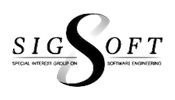7th International Workshop on Robotics Software Engineering (RoSE’25)
- co-located with ICSE 2025
- in-person event in Ottawa, Canada
- April 28, 2025
Theme & Goals
Robotics is one of the most challenging domains for software engineering. Deploying even simple applications requires integrating solutions from several domain experts, including navigation, path planning, manipulation, localization, human-robot interaction, etc. Integration of modules provided by the respective domain experts is one of the key challenges in engineering software-centric systems, yet only one of the cross-cutting software concerns that are crucial to robotics. As robots often operate in dynamic, partially observable, and populated environments, additional challenges include adaptability, robustness, safety, and security.
RoSE aims to bring together researchers and practitioners to identify new frontiers in software engineering for robotics, discuss challenges arising from real-world applications, and transfer the latest insights from research to industry.
Topics of Interest
RoSE 2025 seeks contributions addressing, but not limited to, the following topics related to robotics software engineering:
- Analysis of challenges in robotic software engineering
- Best practices in engineering robotic software
- Continuous integration and deployment in robotics
- Domain-specific languages and tools for the development of robotic software
- Empirical studies of robotics software and software tools, including its usability
- Engineering (heterogeneous) multi-robot systems.
- Identification and analysis of design principles promoting quality of service (e.g., performance, energy efficiency)
- Lessons learned in the engineering and deployment of large-scale, real-world integrated robot software
- Machine learning applied to robotic software
- Metrics measuring non-functional properties (e.g., robustness, availability, etc.) and their application to robotic software
- Mining software repositories of robotic systems
- Model-Driven Engineering methods and techniques applied to robotic software
- Processes and tools supporting the engineering and development of robotic systems
- Software architecture of robotic systems
- State-of-the-art research projects, innovative ideas, and field-based studies in robotic software engineering
- Static and dynamic analysis of robotic software
- Usability studies of robotics software and tools
- Variability, modularity, and reusability in robotic software
- Validation and verification of robotic software
Keynotes
We are happy to host David Lu as this year’s keynote speaker.

David Lu is the founder of Metro Robots, a robotics software consulting firm, focusing on improving robot navigation in real environments around people. He is a leading member of the ROS open-source community as a maintainer and contributor to many of the core ROS packages and four-time presenter and two-time program chair for ROSCon conference. He has a PhD in Computer Science from Washington University in St. Louis and previously worked at PickNik Robotics, Locus Robotics, Bossa Nova Robotics, Willow Garage, Walt Disney Imagineering R&D, Google and IBM.
ROS Introspect: Understanding ROS Packages in Python Through over fifteen years of programming ROS code, I’ve come to understand my own strengths and weaknesses, as well as those in ROS. To overcome my own flaws, I’ve automated as much of the metadata programming as possible so that time can be focused on the core robotics algorithms. To understand how ROS has evolved, we’ll take a look at how the ROS Introspect library has grown over the years, and reflect on where ROS could go in the future.
Workshop Program
| Time | Title | Who | Slot |
|---|---|---|---|
| 09:00 | Welcome to RoSE ‘25 | RoSE’s OC | |
| 09:10 | Keynote – ROS Introspect: Understanding ROS Packages in Python | David Lu | 40+10 min |
| 10:00 | Session 1 | ||
| Model-Based Systems Engineering Toolchains for Software Development of Robotic Autonomous Systems | Calvin Cheung, Andrew Pfiel | 20+10 min | |
| 10:30 | Coffee break | ||
| 11:00 | Session 2 | ||
| Micro Frontend Architecture for Robotic Systems: A Systematic Approach with Design Rationale | Uanderson Silva, Matheus Andrade, José Cruz, Andresa Almeida da Silva, Augusto Sampaio, Kiev Gama | 20+10 min | |
| Towards Adaptable and Uncertainty-aware Behavior Trees | Mehran Rostamnia, Gianluca Filippone, Ricardo Caldas, Patrizio Pelliccione | 20+10 min | |
| Towards Unified Field-Testing and Monitoring for Safe and Secure Robotic Applications | Marco Stadler, Stefan Biffl, Michael Vierhauser, Johannes Sametinger | 20+10 min | |
| 12:30 | Lunch break | ||
| 14:00 | RoSE energetic session | All participants | |
| 15:30 | Coffee break | ||
| 16:00 | RoSE magic session | All participants | |
| 17:00 | Wrap-up & closing of RoSE ‘25 |
Submission Guidelines
Prospective participants are invited to submit:
- Full papers presenting novel contributions on advancing software engineering in robotics (max. 8 pages)
- Short papers presenting preliminary results, challenges, lessons learned, tool and project results (max. 4 pages)
- R1 papers presenting already-published studies relevant to the Software Engineering community accepted at the following robotics venues: ICRA, IROS, IEEE Transactions on Robotics (max. 1 page)
Workshop papers must follow the ICSE 2025 formatting instructions, but will use a single blind submission process. All submitted papers will be reviewed on the basis of technical quality, relevance, significance, and clarity by the program committee. All workshop papers should be submitted electronically in PDF format through the EasyChair portal at this link: https://easychair.org/conferences/?conf=rose2025.
Accepted papers will become part of the workshop proceedings. The official publication date is the date the proceedings are made available in the ACM or IEEE Digital Libraries. This date may be up to two weeks prior to the first day of ICSE 2025. The official publication date affects the deadline for any patent filings related to published work. Purchases of additional pages in the proceedings is not allowed.
Important Dates
11 November 202418 November 2024: Workshop Papers Submission1 December 20248 December 2024: Workshop Papers Acceptance Notification- 5 February 2025: Workshop Papers Camera Ready
- 28 April 2025: Day of the Workshop
Organizing Committee
- Andreas Angerer (XITASO GmbH, Germany)
- Federico Ciccozzi (Mälardalen University, Sweden)
- Ivano Malavolta (Vrije Universiteit Amsterdam, The Netherlands)
- Christopher S. Timperley (Carnegie Mellon University, USA)
Program Committee
- Mark Adamik, Vrije Universiteit Amsterdam, The Netherlands
- Michel Albonico, Technological Federal University of Paraná, Brasil
- Robert Bocchino, Jet Propulsion Laboratory, California Institute of Technology, USA
- Darko Bozhinoski, Université libre de Bruxelles, Belgium
- Jan Broenink, University of Twente, The Netherlands
- Davide Brugali, Università degli Studi di Bergamo, Italy
- Javier Camara, University of York, UK
- Emilia Cioroaica, Fraunhofer IESE, Germany
- Davide Di Ruscio, Università degli Studi dell’Aquila, Italy
- Juergen Dingel, Queen’s University, Canada
- Floris Erich, National Institute of Advanced Industrial Science and Technology, Japan
- Michael Fisher, University of Manchester, UK
- David Garlan, Carnegie Mellon University, USA
- Simos Gerasimou, York University, UK
- Nadia Hammoudeh Garcia, Fraunhofer Institute for Manufacturing Engineering and Automation IPA, Germany
- Rogardt Heldal, HLV, Norway
- Carlos Hernandez Corbato, TU Delft, The Netherlands
- Nico Hochgeschwender, University of Applied Sciences Bonn-Rhein-Sieg, Germany
- Alwin Hoffmann, XITASO GmbH, Germany
- Charles Lesire-Cabaniols, French Aerospace lab (ONERA), France
- Jesús Martínez, Universidad de Málaga, Spain
- Arne Nordmann, NEURA Robotics, Germany
- John-Paul Ore, University of Nebraska-Lincoln, USA
- Patrizio Pelliccione, Gran Sasso Science Institute, Italy
- Momina Rizwan, Lund University, Norway
- Bradley Schmerl, Carnegie Mellon University, USA
- Ulrik Schultz, University of Southern Denmark, Denmark
- Daniel Sykes, Ocado Technology, UK
- Trenton Tabor, Carnegie Mellon University, USA
- Ulrike Thomas, Chemnitz University of Technology, Germany
- Mahsa Varshosaz, IT University of Copenhagen, Denmark
- Andreas Wortmann, University of Stuttgart, Germany
- Sebastian Wrede, CoR-Lab, Bielefeld University, Germany


